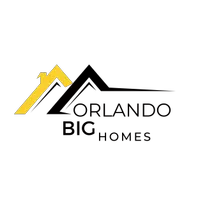Did you know there's a misconception that carrying a balance on your credit card from month to month can benefit your credit score?
That's not true; the ideal approach is to pay off your credit card in full every month. Carrying a balance won't help your credit scores; it'll only cost you money in the form of interest.
The lower your utilization rate, the better it is for your credit scores. Utilization rate is calculated by dividing your account's monthly statement balance (the amount shown on your bill) by the loan limit.
However, it can be strategic to lower your utilization rate by paying the bill before your statement is generated.

Something that can negatively impact the decision to acquire a property is a low credit score. The credit score is a three-digit number that holds significant importance in the American economy and reflects how we manage our debts and financial commitments. For instance, it's quite common for individuals who pay in cash, despite having excellent incomes, to have low credit scores. This is because what matters isn't just the amount of income a person generates, but also how that person manages their credit.
Most people don't pay much attention to their credit score until they need to make a significant purchase or request a loan. For many of us, a property is one of the largest investments we can make, and a loan is often the only way to achieve it.

6 key points to improve credit
Balance
Knowing your score is the first step, and the most important recommendation is to pay off the balances on all your credit cards. This helps increase your score. It's okay to use one of your credit cards, but always make sure to keep the monthly balances as low as possible. Experts recommend not using more than 30% of the available credit to maintain very good credit. According to the Federal government, you're allowed 3 free credit reports per year. You can obtain this information online, but be careful, many websites not "affiliated" with the Federal government may try to charge you for this report.
Pay on Time
If you truly want to increase your credit score, this is another effective way to achieve it. While it might be easier said than done, it's important to make sure that all payments to each credit card and loan you have are made on time. After 15 days of payment delay, it starts to reflect negatively on your credit.
Don't close Accounts
As mentioned earlier, pay off all your credit cards... But don't close any of them until you've applied for your mortgage. Cancelling or closing a credit card can have a negative effect on your credit. Paying off the cards and keeping the credit line open can increase the chances of getting your mortgage.
Open new accounts
Big purchases
Don't make big purchases before applying for a mortgage loan; this includes, among others, going on long and/or expensive vacations, buying a car, and any other high-value items. Those charges can make your credit look weak.
Planning
Improving your credit score is not something you can do overnight. Credit repair can take months. So, be patient and plan for the future.
Our blog posts
News and Articles
CONTACT INFO
1400 S International Pkwy Suite 1020, Mary, FL, 32746, USA



